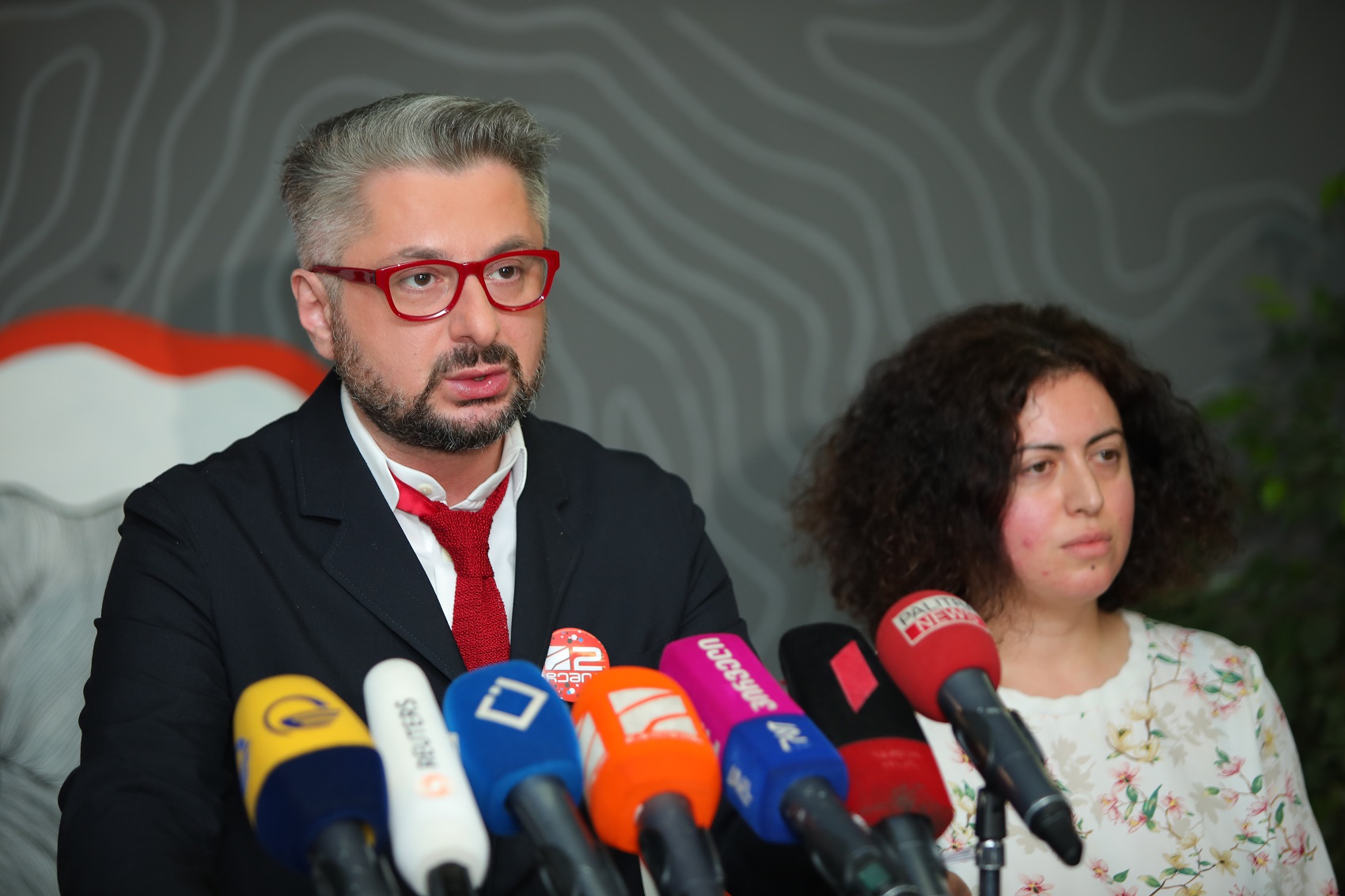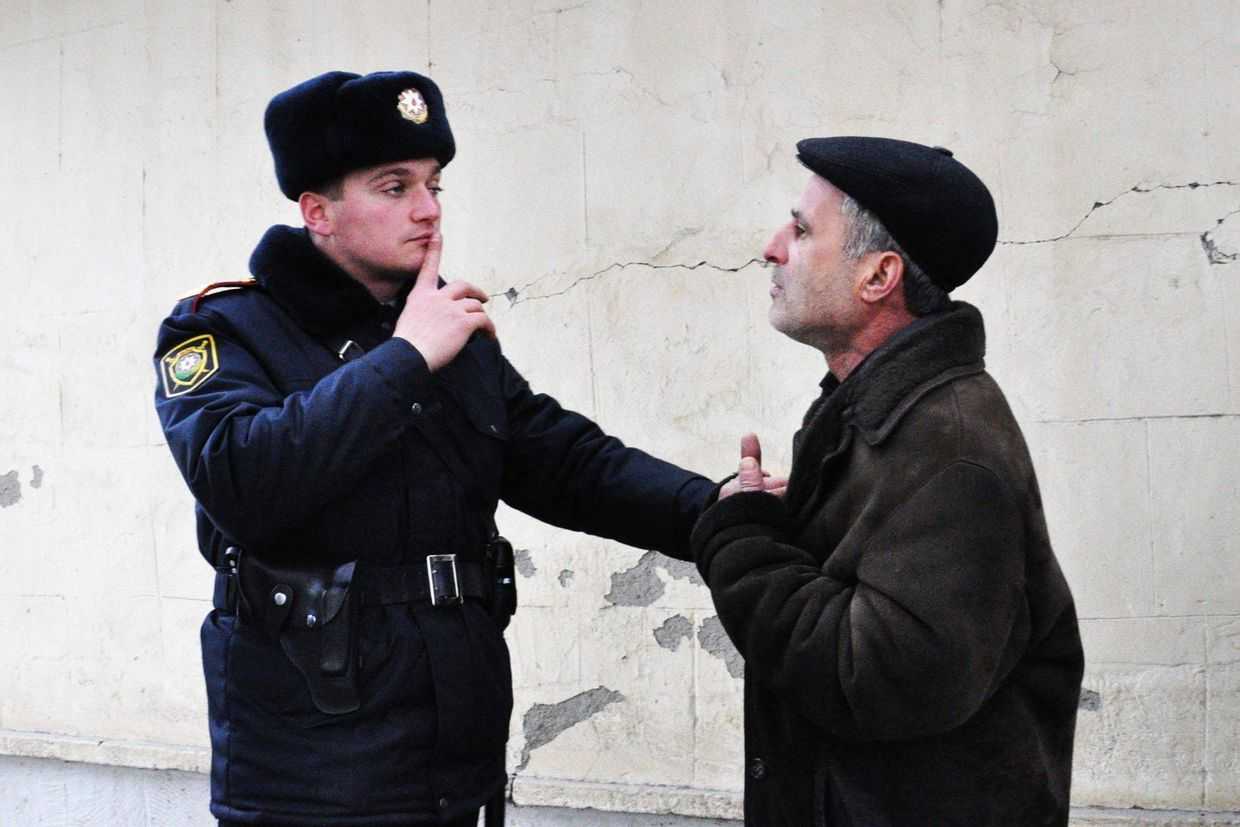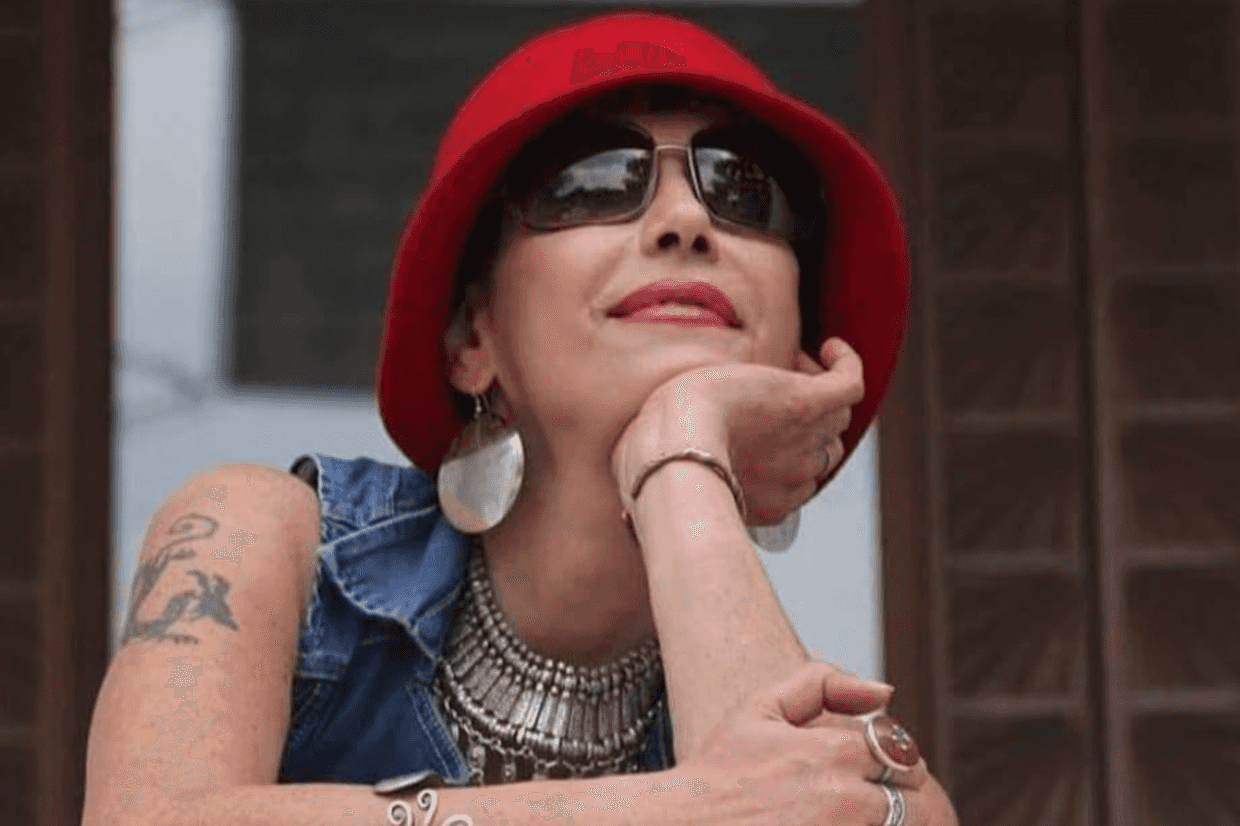

The director of opposition-leaning TV channel Rustavi 2 has accused the Georgian government of attacking the channel’s editorial policy after one of the company’s shareholders launched a ₾28 million ($10 million) legal dispute against him and other shareholders.
Nika Gvaramia, the director of Rustavi 2, said during a televised briefing on 6 May that Nino Nizharadze, who owns 9% of the company’s shares, was demanding he and other shareholders pay her and Rustavi 2 around ₾28 million.
According to a copy of the lawsuit acquired by OC Media, Nizharadze has five key demands. These include the right to sell her shares in the company, a move other shareholders previously blocked, as well as ₾1.5 million ($540,000) in compensation for herself.
She is also demanding that Gvaramia and other shareholders pay around ₾26.5 million ($9.7 million) to Rustavi 2 for mismanaging the company, giving free airtime to opposition parties, and for around ₾10 million ($3.7 million) in income she claims the company did not declare.
On 6 May, Nika Gvaramia denounced Nizharadze’s claims and accused the government of being behind the lawsuit, in an attempt to meddle with Rustavi 2’s editorial policy.
Rustavi 2 has long been accused by critics of being biased towards the opposition United National Movement Party (UNM). In the OSCE monitoring mission’s final report on the 2018 presidential election, they said that ‘the news coverage of Rustavi 2 clearly favoured the UNM’.
The lawsuit came 2 weeks before a parliamentary by-election for Tbilisi’s Mtatsminda District.
Gvaramia and the channel’s lawyers said they believed the complainant would demand the director’s resignation to be replaced with a temporary manager.
‘Nino Nizharadze will probably demand the management be changed because “it cannot cope with its obligations and therefore damages the company”. They will claim it is essential that another person is assigned as director. The aim will be to alter the editorial policy, or to bankrupt the company’, Rustavi 2 lawyer Dito Sadzaglishvili said.
The management of Rustavi 2 offered to have the case reviewed in an international arbitration court, saying they did not trust the independence and impartiality of the Georgian judiciary.
On 8 May Nizharadze’s lawyer, Giorgi Kavlashvili, told Rustavi 2 that her client was ready to take the case to any court, local or international.
‘We are ready to take this case to any platform and tribunal. The court is not our ultimate purpose. We wouldn’t go to court at all had the Rustavi 2 administration responded to our letters’, said Kavlashvili.
As for accusations that Nizharadze’s appeal is orchestrated by the government, the lawyer said that it is not true.
‘Saying that it has a political rationale is not relevant because Nino Nizhradze has been thinking this way for a long time now because of the unattentiveness towards her and the lack of communication’, Nizharadze’s lawyer Giorgi Kavlashvili said.
Nizharadze’s lawyer did not return any of OC Media’s calls.
Judgement ‘expected soon’ in ECHR case
Rustavi 2 is currently expecting a decision by the European Court of Human Rights (ECHR) on a legal dispute over the channel’s ownership.
After the Georgian Supreme Court ruled that Rustavi 2 should be handed to businessman Kibar Khalvashi, who owned the channel in 2004–2006 and who is viewed by supporters and employees of the channel as a pawn of the current government, Rustavi 2 took the case to the ECHR.
On 7 March 2017, the ECHR indefinitely suspended Georgia’s Supreme Court ruling over ownership of Rustavi 2, meaning that until it considered the case, the channel must remain in the hands of its current owners.
Since the dispute began, a number of protests have been held in support of the channel’s current owners, claiming that the government was using Khalvashi in an attempt to mute a major opposition-leaning channel.
Tamta Muradashvili, one of Rustavi 2’s lawyers, told OC Media that the case was at the final stage of consideration in the court. She said that the decision was expected to be unveiled within a year, as the court usually reviews prioritised cases within no more than three years.
Another attempt at pressure?
On 7 May, several prominent Georgian non-government organisations, including the Media Development Foundation and the Georgian Young Lawyers’ Association, issued a statement saying that the lawsuit sparked legitimate concerns in light of the 2015 court developments.
‘Yet another lawsuit not only hinders the workflow of the broadcaster but also endangers media pluralism and the free media environment in our country. The possible change of Rustavi 2’s editorial policy will definitely have a negative effect on the pre-election period by [2020 parliamentary elections] and the democratic process in general’, the statement said.
Several opposition parties also expressed concerns about the editorial independence of the channel.
Davit Bakradze, the chair of the European Georgia Party, which broke away from the UNM in 2017, said on Tuesday that the ‘battle against Rustavi 2 continues’, and that ‘any lawsuit or any move to evade the ECHR, should be unanimously recognised as a frontal attack on Rustavi 2’.
The chair of the non-parliamentary opposition Republican Party, Tamuna Kordzaia, said that ‘if the court makes a decision by which the media outlet basically stops existing, this will equal to a restriction of freedom of expression’.
Officials from the ruling Georgian Dream Party dismissed concerns about meddling in the Rustavi 2’s affairs.
Party chair and Mayor of Tbilisi Kakha Kaladze said that there was free speech in the country.
‘I don’t see that anybody is being restricted in something. On the contrary, we have a super democracy and super freedom’, said Kaladze.
On 8 May, Justice Minister Tea Tsulukiani assured Rustavi 2 that while the company’s ownership was being considered by the ECHR, its management would remain untouched.
She said that the ECHR’s decision to suspend the execution of the Supreme Court’s decision was ‘still in force’. ‘The government cannot take a single step while this decision is still in force until the ECHR announces its ruling’, she added.
What is Nizharadze demanding?
According to the copy of the lawsuit acquired by OC Media, Nizharadze has five key demands.
She had previously tried to sell 4% of the company’s shares but was prevented from doing so in 2015 by other shareholders. One of the demands she presented in court was to reverse this decision.
She is also seeking compensation of around ₾1.5 million ($540,000) in damages from shareholders over the decision.
Nizharadze also demanded the shareholders and the director pay ₾12 million ($4.4 million) to Rustavi 2 in undeclared income and over free advertising time given to two opposition parties.
In February 2018, Kakha Bekauri, the head of Georgian National Communications Commission, claimed that Rustavi 2 had not declared ₾10 million ($3.7 million) of income, which he said the commission discovered by analysing the company’s 2014–2015 tax returns.
Gvaramia dismissed this claim on 6 May saying that ‘the only one who was talking about this in 2015 was Kakha Bekauri and his commission, which is a total absurdity — no such thing has happened’.
In addition to this ₾10 million, Nizharadze is seeking around ₾2 million over free political advertising time given to opposition candidates from the UNM and European Georgia parties during the 2018 presidential elections.
According to the lawsuit UNM candidate Grigol Vashadze was given 388 minutes more airtime then obliged by law, worth ₾1.3 million, and European Georgia’s David Bakradze was allocated 198 additional minutes, worth ₾660,000 ($240,000).
During his televised address, Gvaramia insisted that more time was also given to government supported candidates.
The lawsuit also demands that shareholders and the director pay another ₾15 million ($5.5 million) to Rustavi 2 over fines accrued by the company due to mismanagement.
This, the lawsuit says, is the sum of the fines imposed on the company for failing to pay around ₾24 million ($8.8 million) in taxes. She noted that she as a shareholder is afraid of being imposed fines because of the debt.
During his televised briefing, Gvaramia confirmed that the company had not paid its taxes since 2016. He said that during their legal dispute over the company’s ownership, it would have been impossible to survive had they done so.
He added that they believe these taxes have been imposed on them illegally and therefore their appeal in the ECHR also includes a demand to retract them.
He said that while it was clear why Rustavi 2 was not paying taxes, it was unclear why government-leaning TV channel Imedi was not.
According to Netgazeti, Imedi owes the government around ₾17 million ($6.2 million) in taxes.
Nizharadze’s final demand was that Rustavi 2 cease its contract with Inter Media, a company in charge of selling the channel’s advertising time.









